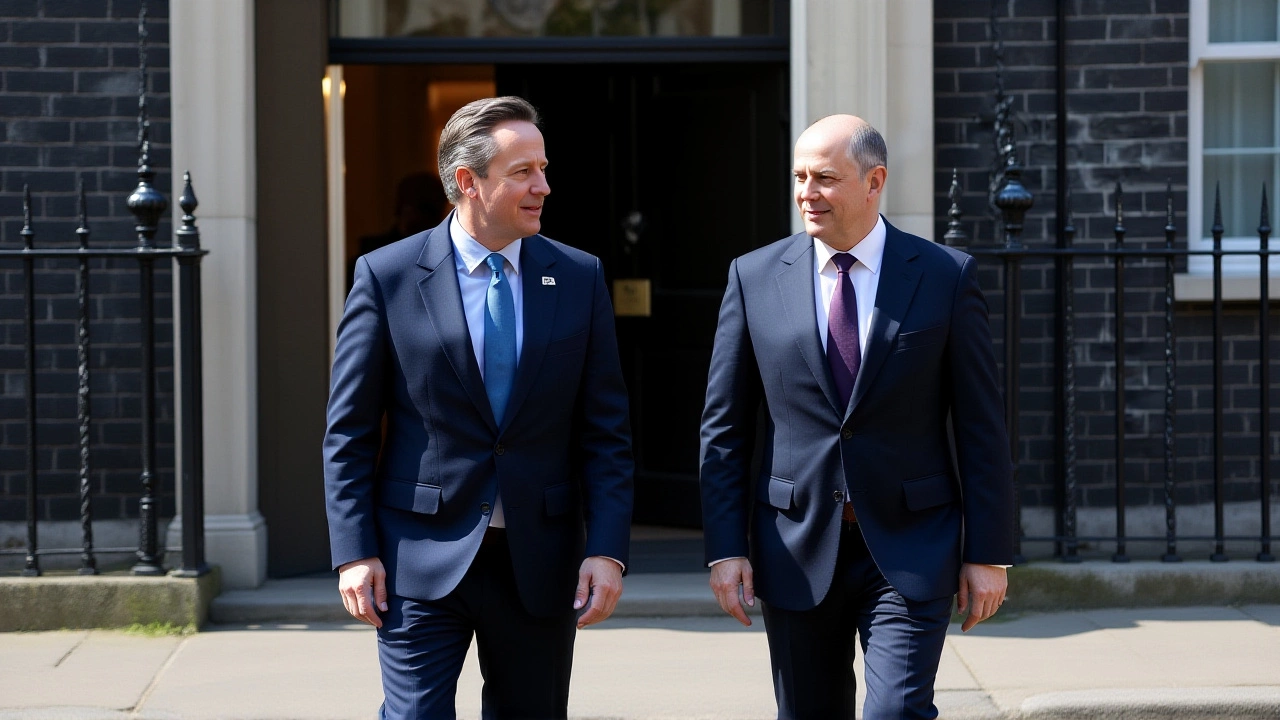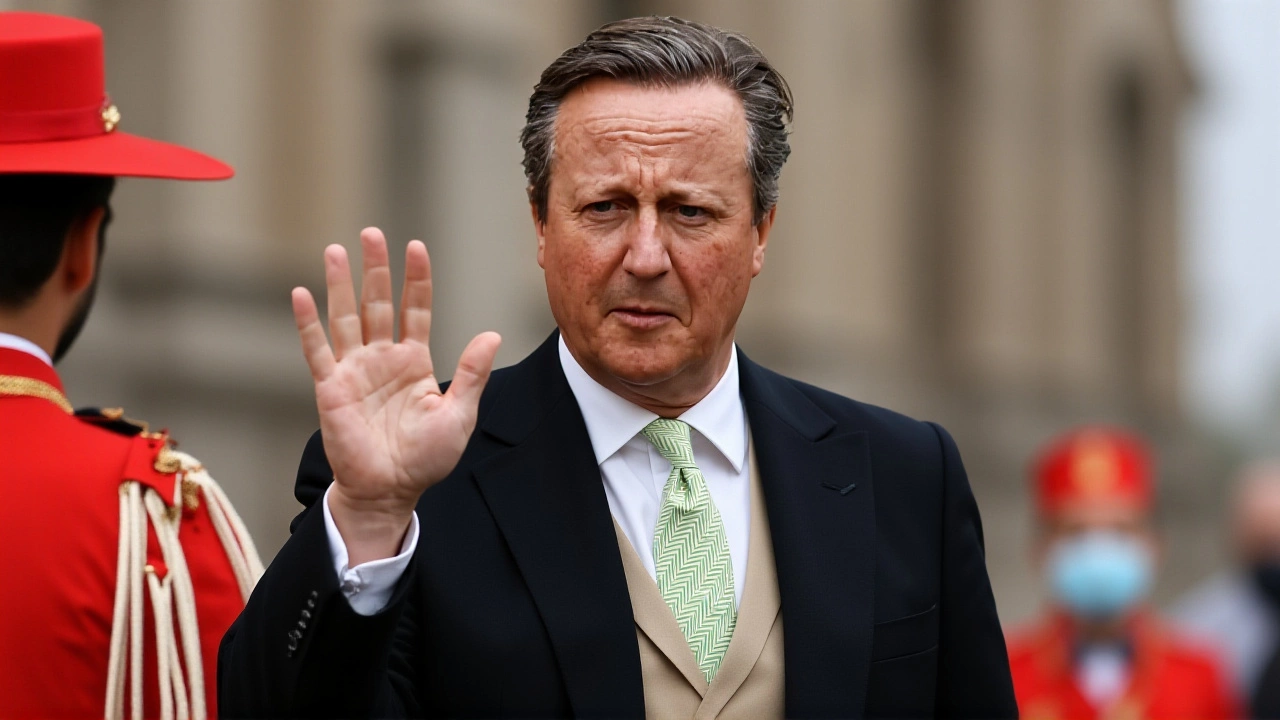On November 13, 2023, David Cameron made a stunning political return, appointed Foreign Secretary by Prime Minister Rishi Sunak — the seventh person to hold the post in just seven years. At 56, Cameron, who stepped down as Prime Minister after the 2016 Brexit referendum, is now back at the heart of British power, despite having spent seven years in the House of Lords. His return isn’t just symbolic; it’s a strategic play by Sunak to stabilize a foreign policy that’s been in freefall, while freeing himself to tackle domestic chaos. The move stunned Westminster, not because Cameron is unqualified — quite the opposite — but because no former PM had returned to frontline cabinet duty in modern British history like this.
A Foreign Secretary With a Legacy
Cameron’s tenure as Prime Minister from 2010 to 2016 was defined by austerity, tax cuts, and the fateful decision to hold the EU referendum. But internationally, he was known for his charm, fluency in global diplomacy, and ease on the world stage. Chatham House noted he was "comfortable on the world stage and congenial in the relationships he formed" — a stark contrast to his predecessors. He’s already been spotted in high-stakes meetings: with Israeli Prime Minister Benjamin Netanyahu at COP events, in Washington to meet U.S. officials, and in Brussels with Maroš Šefčovič, the European Commission’s top economic official. These aren’t photo ops — they’re signals. Sunak is betting that Cameron’s personal credibility can reopen doors shut by years of political turmoil.But there’s a catch. Cameron’s past isn’t spotless. His advocacy for Greensill Capital, the now-bankrupt financial firm, raised eyebrows. An official inquiry found he broke no laws, but the optics were terrible — lobbying ministers during a pandemic for a company linked to his former business associates. Critics still see it as a textbook case of elite privilege. And then there’s China. When Cameron was PM, the UK saw China primarily as an economic opportunity. Today, the government’s stance has flipped: Beijing is a "strategic challenge." Chatham House warns Cameron must quickly clarify whether he’s aligned with this new reality — or still clinging to the old, more optimistic view.
Why Remove Suella Braverman?
The reshuffle didn’t just bring Cameron back — it pushed someone out. Suella Braverman, the hardline Home Secretary, was sacked the same day. Her rhetoric on immigration, often described as inflammatory even by Conservative standards, had alienated moderate Tories and fueled fears of the party drifting toward populism. Chatham House analysts suggested Braverman’s removal was "a signal to reassure traditional moderate Tories." It wasn’t just about policy — it was about tone. Cameron, by contrast, is seen as a stabilizer. His return suggests Sunak wants to rebrand the Conservatives as competent, not combative.
Who Benefits — and Who Pays?
For Sunak, the math is simple: Cameron brings global gravitas without demanding parliamentary time. As a peer, Cameron doesn’t need to defend policy in the House of Commons, freeing Sunak to manage a fractious backbench. The Institute for Government put it bluntly: "By appointing a former prime minister as his foreign secretary, Rishi Sunak has produced a plausible alternate — already well known on the international stage, and with more experience of top-level engagement than he has been able to amass in his brief ministerial career." But it’s not all smooth sailing. Cameron’s legacy is polarizing. His austerity policies, the VAT hike to 20%, and the cuts to higher income tax rates still haunt his reputation. And while he introduced the pupil premium — a landmark education funding reform — critics argue it was offset by deeper cuts elsewhere. His tenure also saw the structural deficit cut nearly in half by 2015, but at what social cost?The Bigger Picture: Reviving Ministerial Careers
Cameron’s return isn’t just about him — it’s a test case for a new political norm. Can retired ministers be rehired without undermining generational renewal? The Institute for Government called it a "bold experiment." Other nations have done it — think of Germany’s Helmut Kohl or Canada’s Brian Mulroney returning to advisory roles — but Britain has resisted. Now, the rules are being rewritten. The question isn’t whether Cameron can do the job. It’s whether the system can handle another former PM walking back into the room.And the stakes couldn’t be higher. With war in Ukraine dragging on, the Middle East on fire, and U.S. politics teetering toward chaos, Britain needs a foreign secretary who can command respect. Cameron can. But can he navigate a world where the alliances he once cultivated have changed — where Merkel is gone, Trump may return, and China no longer plays by the old rules?

What’s Next?
Cameron’s first major test will come when the Rwanda deportation bill reaches the House of Lords. He’ll be expected to defend it — even if he privately disagrees. Then there’s the G7 summit in 2024, and the looming NATO meeting. Will he push for a stronger European alignment? Or quietly accept Britain’s post-Brexit isolation? His early moves will define his second act.Frequently Asked Questions
How does David Cameron’s appointment affect UK foreign policy credibility?
Cameron’s return instantly boosts UK credibility abroad — especially in Washington and Brussels — where his personal relationships with leaders still carry weight. His presence signals stability after seven foreign secretaries in seven years. But his legacy on austerity and Greensill Capital may undermine trust in some emerging markets, particularly in Africa and Asia, where perceptions of Western elitism remain sensitive.
Why was Suella Braverman removed at the same time?
Braverman’s removal was less about policy failure and more about tone. Her rhetoric on immigration had alienated moderate Conservatives and damaged the UK’s international image, particularly in Europe. Replacing her with Cameron — a figure associated with pragmatism, not populism — was a clear signal that Sunak wants to reclaim the center ground before the next election.
What’s the significance of Cameron being in the House of Lords?
Being a peer allows Cameron to focus on diplomacy without the daily grind of Commons debates. He’s free to travel, meet foreign leaders, and build relationships — but he’s also shielded from direct accountability to voters. This creates a tension: he’s powerful, but not answerable in the way elected ministers are. It’s a loophole that may not survive public scrutiny if his policies face backlash.
How has the UK’s stance on China changed since Cameron’s premiership?
When Cameron was PM, the UK pursued a "golden era" of economic ties with China, welcoming investment and downplaying human rights concerns. Today, the government classifies China as a "systemic challenge," citing espionage, tech competition, and support for Russia. Cameron must now reconcile his past optimism with today’s realism — a shift that could strain relations with Beijing if he pushes too hard, or weaken Britain’s position if he doesn’t push hard enough.
Can Cameron’s past policies be separated from his current role?
Not easily. His austerity measures, tax reforms, and the Brexit referendum still shape public opinion. While foreign policy is often insulated from domestic politics, voters don’t forget. His Greensill controversy, though legally cleared, fuels perceptions of privilege. His success will depend on whether he can project forward-looking leadership — not just nostalgia for a bygone era of Conservative dominance.
Is this appointment a sign of Sunak’s weakness or strength?
It’s both. Bringing in Cameron shows Sunak lacks the international stature to handle foreign policy himself — a sign of weakness. But it also shows strategic strength: he’s willing to use a former rival to stabilize a failing portfolio. This isn’t desperation — it’s a calculated gamble that experience trumps loyalty in a moment of global crisis.
